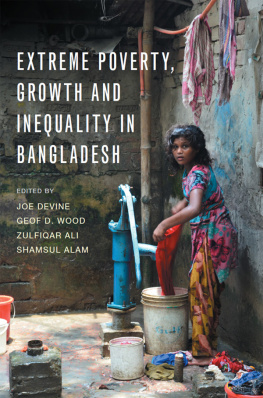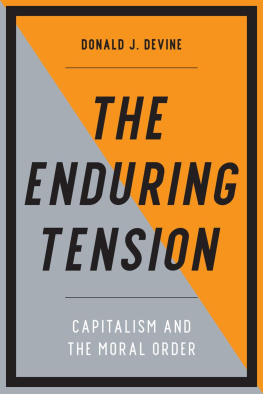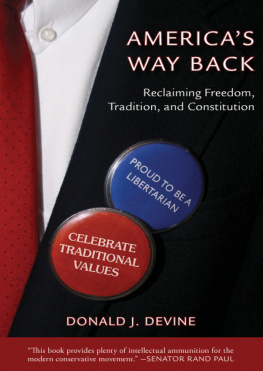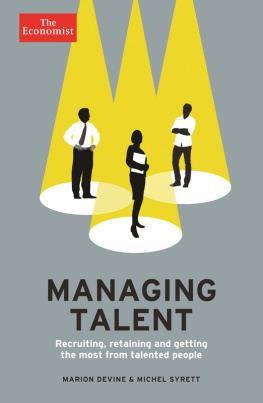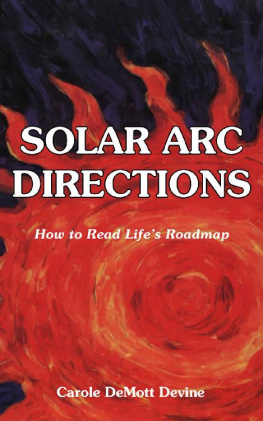Authors Note
I turned in the completed manuscript for this book on Wednesday, November 25, 2020. This, as many of you know, was just eighteen days after Joe Biden and Kamala Harris declared victory in the presidential election, cementing Harris as the first female, first Black, and first South Asian vice president-elect in the United States.
The timing of your book is epic , a girlfriend had texted me on the sunny Saturday afternoon of the Biden/Harris news. I hope so! I honestly feel like I could keep writing and writing , I replied.
Harriss achievement is monumental and should absolutely be celebrated as such. As should the work of all the changemakers who mobilized voters to make it happen. But when the announcement was made, I found myself only cautiously excited. I know now that while electing our first female vice president is an important step in the right direction, this progress is not finite, nor is Harriss achievement representative of access to equality for all. History proves progress can easily be reversed, and there is much work to do to ensure all women have the opportunity to thrive and achieve their dreams.
That said, it was shortly after this weekend I finally cemented the subtitle for this book. Previous versions included How the Power of Inclusion Can Save Humanity , and How Empowering Women Empowers Humanity , and, frankly, a few others. I came to choose The Power and Promise of Prioritizing Women because I know now, without a doubt, that when women are better represented in leadership, progress tends to accelerate for all of humanity. So, yes, this is a book for all genders, about the power of inclusion, and empowering women. But, at the end of the day, what I found myself terribly excited about in the Biden/Harris news was the promise a first female vice president holds, especially when coupled with the largest number of women elected to congress. I know now its important we all become comfortable with prioritizing the inclusion of women more fully, equally, and equitably, because humanity stands to gain so much when we do.
While my timing may be epic, as you read on, I invite you to remember my stories and research are but a snapshot in time, and we all have the power and responsibility to keep writing, learning, and changing the world.
With gratitude,
Maureen
Introduction
If you dont like the way the world is, you change it. You have an obligation to change it. You just do it one step at a time.
Marian Wright Edelman, founder and president emerita of the Childrens Defense Fund; graduate of Spelman College and Yale Law School; and, in 1965, became the first black woman admitted to the Mississippi Bar. She has been an advocate for disadvantaged Americans for her entire professional life.
Imagine going to your next book club meeting and learning the majority of attendees believe women:
shouldnt be president;
shouldnt earn more than men;
shouldnt go to grad school;
shouldnt have the right to govern their own bodies; and
deserve the occasional open-handed smack from their husbands.
Maybe youd quit that book club. Except, outside book club awaits a world in which 90 percent of the population is biased against women in politics, economics, education, violence, and reproductive rights. Men are regarded as supreme political leaders and business executives, despite clear evidence of their misplaced self-confidence, arrogance, greed, missteps, lack of empathy, and corruption. A significant portion of the population finds it acceptable for a husband to beat his wife. Ninety percent of countries have restrictive laws against women.
Forget quitting book club. Time to build a bunker.
This isnt the start of a dystopian fiction novel. Instead, the above represents the very real findings of the first gender social norm index released by the UN Development Programme on March 5, 2020. Analyzing data from seventy-five countries who, collectively, represent more than 80 percent of the global population, the study found that 90 percent of the worlds population harbors bias against women. Specifically, nine out of ten men and eight out of ten women hold at least one bias against women. Remarkably, only in six countries on the planet did a majority of people not hold a bias against women (Andorra, Australia, the Netherlands, New Zealand, Norway, and Sweden).
I was about three months into my writing journey when these findings were published. Reading them marked one of many moments when a project that began with naive curiosity evolved to feel more pressing, serious, and urgent.
At the end of 2019, I decided to challenge myself to write a book, inspired by the advice I had received to research and write about what you need to read. Ive always felt called to the work of empowering and uplifting other women in pursuit of equality. I was curious whether I was doing enough, if I could be doing more, and if I would live to see gender equality achieved in my lifetime.
I wondered, What remaining barriers are there to achieving gender equality? What will it take to eradicate all remaining forms of inequality and inequity? Is achieving gender equality even the right goal? Will women ever just be able to enjoy life without everyday oppression? I was talking these curiosities over with a girlfriend at lunch one day when she said, I know. Smash the patriarchy, right?
Except the battle cry of smash the patriarchy was something I could never fully find my place in. Sure, in theory Im on board, but I couldnt help but notice the phrase was often accompanied by clenched fists and bearing of the teeth (my lunch companion had banged her fist on the table). To me, the phrase invoked anger and discontent, surfaced embers of a smoldering rage, and played straight into angry feminist stereotypes. And it kept that stupid thing, the patriarchy, crossing our lips.
When I set my sights on smashing the patriarchy, it felt too much like war. Like something we must win. Something that is potentially unwinnable. After all, the patriarchy has been alive and well for about ten thousand years. If we declare war on the patriarchy, it presumes there will be winners and losers in the end. As a goal-oriented person, I know there are stretch goals and there are over-stretched goals. The former can be a great motivator. The latter can be a motivation killer. For me, smashing the patriarchy seemed an overstretched and ill-defined goal.
What happens after we smash the patriarchy? Can the patriarchy be fully smashed? Does the goal of smashing it mean women win? Men lose? Something else? What exactly does life look like on the other side? Even if we can smash this thing that has literally survived, well, everything, what is left in its wake?




